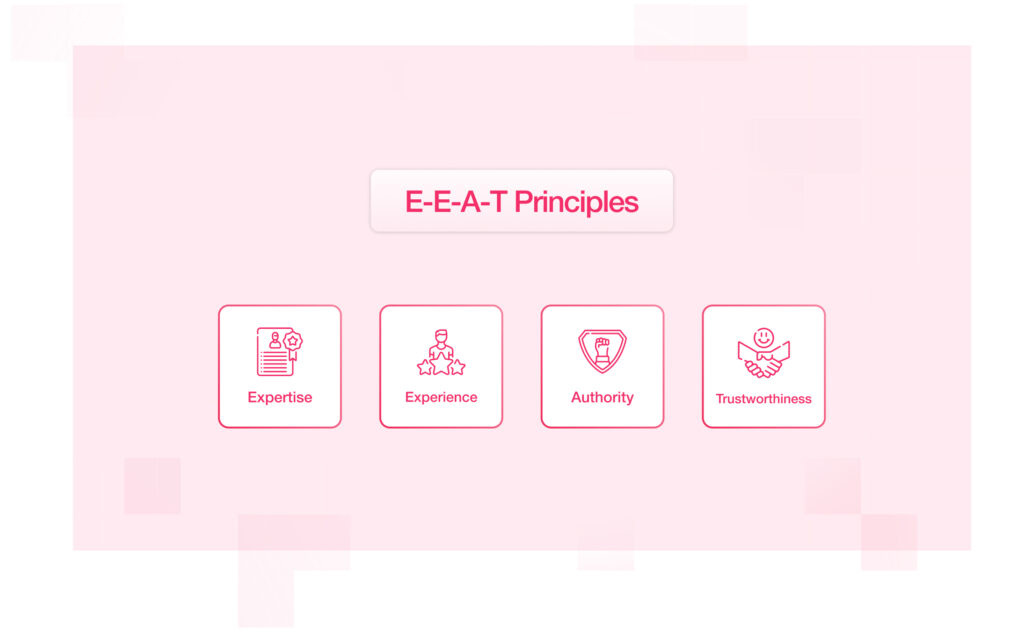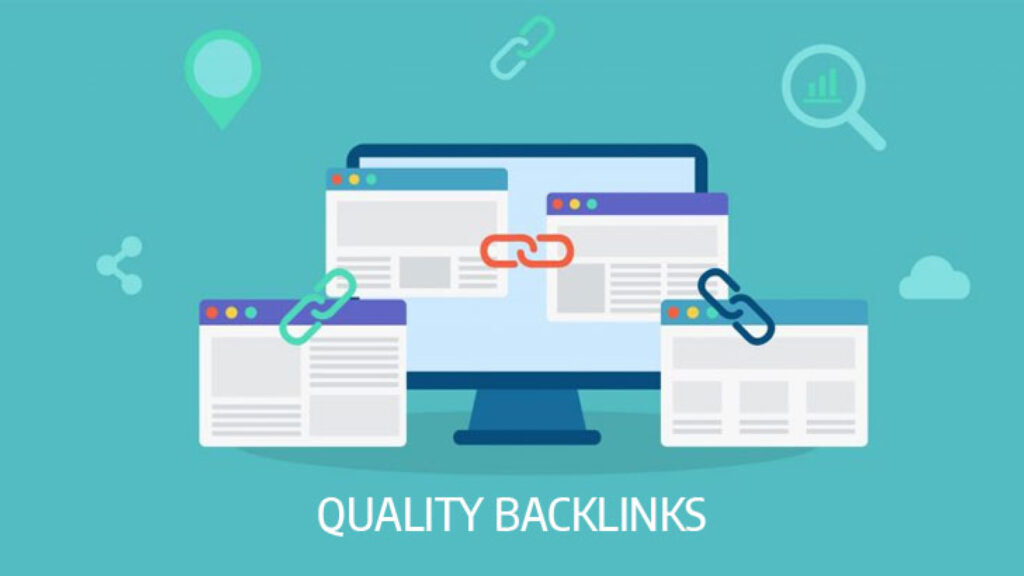SEO Best Practices: How to Rank Higher on Google in 2025 ?

SEO remains an important part for companies and websites to rank higher on Google. As search engine algorithms further improves, it has become more important than ever to keep track of the trends and SEO best practices. From understanding search intent to mobile optimization to voice search optimization, there are many tactics that can make a significant difference in your site’s performance.
In this blog, we will dive into new SEO best practices that can improve your ranking in 2025. Both seasoned SEO professionals and newcomers to search engine optimization will find that adopting these strategies optimizes their websites for both search engines and users. As we make our way through content creation, technical SEO, and AI-related innovations, such as video optimization, we hope to equip you with a comprehensive roadmap for achieving excellence in the competitive SEO space.
Understanding Search Intent and User Experience
The algorithms of Google focus on content that is relevant with user search intent. Therefore, create content that answers the needs and the questions of the target audience. Understanding the different search intent types such as informational, navigational, transactional, and commercial investigation, are part of what should define the development process for content creation strategies. A good user experience is also important; fast loading times, a mobile-friendly interface, and an intuitive navigation path all contribute significantly to a user’s satisfaction and thus rank on the search.
Focus on E-E-A-T Principle

The search engine Google judges’ content with the help of E-E-A-T– that is, experience, expertise, authoritativeness, and trustworthiness. Starting in 2025, judges will evaluate content based on firsthand experience and expertise. This becomes evident when providing extensive, well-researched, and informational content, along with proven credentials or cases that establish someone as an authority in that area. Building trust with the audience through any transparent practice- like proper, clear sourcing, or honest revelations- adds further credibility elements to one’s site.
Optimize for AI Powered Search Features
Artificial intelligence (AI) has made way in the form of Search Generative Experience (SGE), and now Google can show AI generated answers in the very same search results. And the best way of optimizing for such features is, of course, to create content that gives a very specific and accurate answer to any given question. Structuring the content to align with Google’s AI understanding can significantly increase the chances of it appearing in AI-generated snippets. Conversational keywords and natural phrasing would also add to the compatibility of the text with AI-driven search queries.
Mobile First Indexing
Google indexes and ranks based on the mobile version of a site. Therefore, it is important to make sure a website is mobile friendly in terms of responsive designs, page speed, and touch navigation. Mobile usability issues can prevent some ranking losses by performing mobile tests regularly and acting upon them.
Implement Structured Data Markup
Schema markup is a structured filtering capability that enables search engines and higher-end search engines to comprehend the context of your data. Its effective use can cause rich snippets, which can change the appearance of pages in a search result. Take schema markup to the next level with your product pages, where price, availability, and review-rating data can be displayed for availability in search results with drawings for clicks.
Develop High-Quality, Original Content
SEO depends on content. Quality, authentic content should be developed which is valuable to an audience, with all the necessary research about bringing something different and comprehensively discussing topics. Any content produced because of artificial intelligence without meaning or realism should be avoided because search engines are becoming cleverer at detecting between human-and computer-made content.
Build a Diverse Backlink Portfolio

Backlinks are an important factor in ranking, the links must also be of good quality and relevant. Top-quality backlinks should be acquired from reputable websites in your industry through guest blogging, partnerships, or the creation of shareable content. Any black-hat link-building practice should be avoided, as search engines are constantly refining their algorithms to detect and punish such actions.
User-Generated Content and Reviews
Encouraging user-generated content like reviews and testimonials will increase the credibility of your site and ensure the addition of fresh content. Reviews encourage potential customers and help the search engine to perceive the site as credible. By establishing a mechanism for showcasing feedback from users, you would be promoting better ranking and user engagement.
Monitor and Adapt to Algorithm Updates
Google makes many changes in their search algorithms from time to time, so such transformations can also bring about fluctuations in your site’s rankings. Hence, keeping yourself informed about these alterations and comprehending their implications is important. It is important to constantly reviewing your site’s performance statistics for necessary adjustments to keep your rankings intact or perhaps get you climbing. Effective use of Google Search Console and similar analytic platforms such as tracking can give you a good idea of how you’re dealing with these algorithm changes in depth.
Prioritize Core Web Vitals

The core web vitals (Loading, Interactivity, Visual Stability) are performance metrics that define an actual user’s experience in loading, interactivity, and visual stability. Improving these metrics will result in an improved end-user experience and affect its search ranking positively. Optimizing images, reducing server response times, and ensuring responsiveness of interactive elements are all parts of such improvements.
Optimize For Local SEO
Local SEO is important for any business to attract local clients. Claiming and optimizing your Google My Business listing, generating local reviews, and having your NAP (Name Address Phone Number) data consistent across all platforms are some of the essentials in this. Creating localized content customized to your community can also improve the visibility of your business in the local search outcome.
Need Reliable SEO partner to help grow your Business?
Our Experts Can Help!
Using AI and Automation Tools Responsibly
AI will allow automation across various segments of SEO, keyword research, content optimization, and performance analysis; however, AI tools need to be used with caution. If content generation is done only through AI with no human supervision, it may lead to producing generic content or completely wrong information. Therefore, a better strategy for SEO will be working together with AI tools and human specialists.
Building a Strong Internal Linking Structure
An essential aspect of good SEO, internal linking helps search engines find and crawls through our websites while making navigation easier for end users. One should clearly understand the practice of strategically linking between related pages and blog posts on one’s site. That way, we effectively build up the page authority and can aim to rank for several keywords.
For example, linking those older blog posts with an appropriate keyword helps immensely raise their visibility. It also encourages the user to click around more on the site, which in turn helps lower the bounce rate and raise engagement. Be mindful, though, that your internal linking must be done logically and is relevant to a degree; never try to have extreme anchor text optimization. It comes off as spammy.
Another way to make search engines understand your content is having a simplified URL structure holding the keywords directly, such as yourwebsite.com/seo-best-practices.
Optimize for Voice Search
Voice search optimization is the key to ranking high on Google in 2025, as the voice search technology is evolving. Compared to regular search queries through the keyboards, voice search queries are more conversational and longer.
Include the following within your optimization plan for the voice search:
- Make use of very natural long-tail keywords.
- Clearly address the questions in the content that you write.
- Have a very fast website that is mobile-friendly, as most voice searches take place on mobile devices.
Incorporating these elements into your SEO strategy can help you capture a share of the ever-growing voice search market.
Video SEO
One can say that the importance of video content has risen and that better results can be achieved by optimizing videos for search engines. YouTube comes in as the second-largest search engine in the world, while videos often appear in Google’s search results.
Improving your video SEO:
- Optimize your title, description, and tags for keywords.
- The use of closed captioning or transcripts enhances the accessibility and indexability of video content.
- Make things easier for search engines to better determine your video’s content: You can help search engines by adding schema markup for videos.
- Make sure that your video has a compelling thumbnail and a high engagement level such as likes, comments, shares, etc., which essentially translates to higher ranking.
Improve Content Depth and Quality
Thin or superficial content won’t work anymore in 2025: Google’s algorithm will reward increasingly comprehensive content that matches a query.
Here are the recommendations for improving quality and depth in your content:
- Conduct research from various aspects.
- Structure the content well with headings, subheadings, and bulleted lists to make it scannable.
- Give data, case studies, examples, or real-life uses to prove your claims.
- Refresh or rewrite old content regularly so as to keep it relevant and accurate.
This widens your possibility of ranking high, and it also makes your site a resource valuable to your audience.
Engage in Social Media SEO
Although social signals- such as likes, shares, and comments- do not affect the rankings, they drive visitors to your website and thus create more opportunities for possible backlinks and/or user-generated content. They can also serve as another means to make audiences aware of your content.
This is how you invite social media into your SEO:
- Sharing the content across social media platforms.
- Encourage users to share your content with their followers.
- Use social media as an effort to engage with customers by responding to posts and joining conversations that are relevant to your niche.
- Create a community around your brand, to include user-generated content and feedback.
Social media isn’t only responsible for direct hits but brings about feedback loops that can create an improved-styled and efficient output in SEO later.
Technical SEO
Technical SEO ensures that search engine crawlers, the agents which play a huge hand in site ranking, have a good time indexing content on the site. Without proper technical SEO, even the best content is destined not to rank well.
Key technical aspects of SEO include:
- Crawlability: Make sure search engine bots can crawl through and index your site with ease. Use Google Search Console to keep an eye on crawl errors and fix any issues that may arise.
- Indexability: Check whether your pages are indexable or are blocked by your robots.txt file or other meta tags such as “noindex”.
- Site Speed: The faster a site operates, the better will be its rankings and user experience. Enhance your website loading speed with tools like Google PageSpeed Insights and GTMetrix, which analyze page and website loading speeds.
- URL Structure: Ensure URLs are clean, short, and descriptive. Lengthy and complicated URLs with irrelevant parameters should be avoided.
Fixing these technical components will ease the indexing job for any search engine and help it rank even better.
Need Technical SEO guidance and support to boost your website rankings?
Our Experts Can Help!
Semantic SEO
Semantic SEO is the act of enhancing content by understanding meaning and relationships instead of directing it toward specific keywords. With Google getting much more advanced in context and meaning concerning a search term, semantic optimization will become quite critical for strategies in 2025 and beyond.
Ways of Optimizing Semantically:
- Use related keywords and synonyms naturally throughout your content.
- Organize your content around topics rather than individual keywords.
- Create a big, long piece of content that answers everything about a particular angle on a topic.
- Use topic clusters and pillar content to create strong topical authority for your site.
Semantic SEO helps Google understand the overall context of your content better, which allows it to rank higher for many relevant keywords.
Improve Security with HTTPS
Security is becoming more and more important for search ranking purposes. Google has stated that it favors secure sites, and HTTPS (Hypertext Transfer Protocol Secure) is a ranking consideration.
To secure sites:
- Verify that your site is being served over HTTPS and not over HTTP.
- Update software, plugins, and security certificates on a regular basis.
- Properly encrypt user data.
HTTPS not only assures user safety but also provides assurance to search engines about your site being secure, thus impacting its ranking positively.
Analyze and Measure your SEO Performance
If you want to perfect and change the SEO strategy, then you need to measure your website performance frequently. SEO is a long-time play; analyzing data will show what works and what doesn’t.
Tools that should be used:
- Google Analytics follows traffic, user behavior, and enhancements.
- Google Search Console offers features to monitor the search queries, CTRs, indexing problems, etc.
- SEMrush or Ahrefs for tracking keyword rankings, backlink profiles, and competitor analysis.
So, regular reviews will keep you updated about your SEO goals so that if there are changes, you can readjust or synchronies them.
Looking for a Partner in Your SEO Journey?
We Can Help!
Conclusion
So, for 2025 and beyond into the future, the secret to a good ranking in Google will be about the most up-to-date SEO practices and the alignment of those with the technological changes, changes in user behavior, and changes in the search engine algorithm itself. From high-quality content to mobile devices to good technical SEO to the role of AI, all these efforts will complement each other to give you the best chance of succeeding.
The site will do quite well in search results because it does what’s right for the audience when it focuses on the user experience, develops high-quality content, and is informed about algorithm updates. You will manage to navigate around that ever-moving piece of land that is SEO, and your content will stay relevant and visible for years to come-in 2025 and beyond.
 Shopify
Shopify













